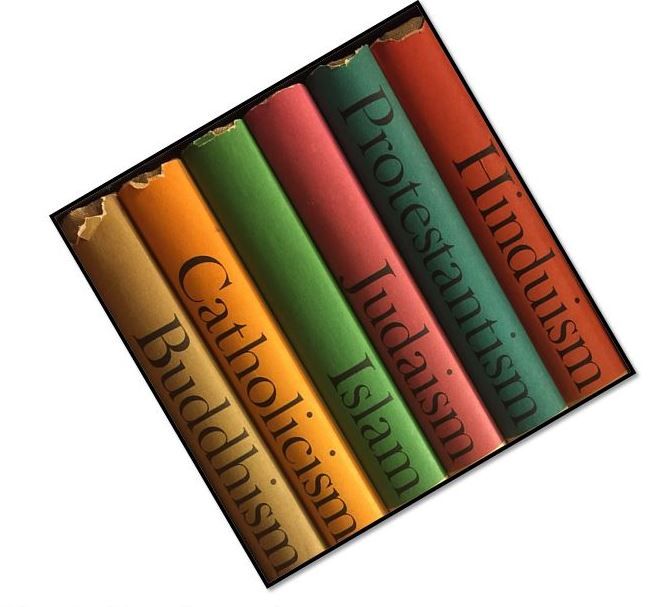- Clinical Technology
- Adult Immunization
- Hepatology
- Pediatric Immunization
- Screening
- Psychiatry
- Allergy
- Women's Health
- Cardiology
- Pediatrics
- Dermatology
- Endocrinology
- Pain Management
- Gastroenterology
- Infectious Disease
- Obesity Medicine
- Rheumatology
- Nephrology
- Neurology
- Pulmonology
Religion and Vaccines: A 5-question Quiz
What position do the world's organized religions take on vaccines and vaccination? Find out who's "Yay" and who's "Nay."
©Jacqueline F. Cooper/Shutterstock.com

A number of parents refuse vaccines for their children based on religious and/or philosophical beliefs. Maybe you have had experiences with families who observe one of the world’s religions that takes a negative position on vaccination. Whether you have or haven’t, it may be interesting to see what you know about the stance on the issue of the following 5 organized religions.
1. What is the Roman Catholic position?
A. Imposes no restriction on any vaccines.
B. Forbids the use of vaccine derived from aborted fetal tissue.
C. Advocates the use of alternatives, if available, to vaccines made with the use of aborted fetal materials.
D. Does not have an official position and leaves the decision up to the individual.
Please click below for answer, discussion, and next question.
The correct answer is C. Advocates the use of alternatives, if available, to vaccines made with the use of aborted fetal materials.
Vaccines against varicella, rubella, hepatitis A, herpes zoster, and rabies are made in fetal fibroblast cells. Zostervax (herpes zoster) is the only vaccine listed above with an alternative not made with fetal tissue, Shingrix.
********************************************
2. Is there a position on vaccines in Judaism?A. Imposes no restriction on any vaccines.
B. Forbids the use of vaccine made with porcine derived ingredients.
C. Opinion varies depending upon the sect (Orthodox vs Conservative vs Reform).
D. Does not have an officical position and leaves the decision up to the individual.
Please click below for answer, discussion, and next question.
The best answer is D. Does not have an official position and leaves decision up to the individual.
No single voice for Judaism exists. Numerous rabbis from the three sects noted support the use of vaccines and in their opinion under Jewish law, no objection to the use of pig tissue in vaccine production exists. The importance of preserving human life (pikuakh nefesh) is paramount.
********************************************
3. What is the official position of Islam on vaccines?A. Imposes no restriction on any vaccines.
B. Forbids the use of vaccine made with porcine-derived ingredients.
C. Opinion varies depending upon the sect.
D. Does not have an official position and leaves the decision up to the individual.
Please click below for answer, discussion, and next question.
The best answer is A. Imposes no restriction on any vaccines.
Some specific Muslim communities throughout the world, however, oppose vaccines, most notably the Nation of Islam. Most imams and other Islamic leaders support the use of vaccines. In 1995, a conference of Islamic scholars decided that the transformation of pork into gelatin alters the pork sufficiently to allow Muslims to receive vaccines containing pork gelatin.
********************************************
4. Is there specific guidance on vaccines for Mormons?
A. Impose no restriction on any vaccines.
B. Forbids the use of vaccine made with porcine derived ingredients.
C. Opinion varies depending upon the sect.
D. Does not have an official position and leaves the decision up to the individual.
Please click below for answer, discussion, and next question.
The correct answer is A. The Mormon Church imposes no restriction on any vaccines.
********************************************
5. What is the Amish position?
A. Most Amish parents who refuse vaccines do it for safety/efficacy concerns, not religious ones.
B. Most Amish parents who refuse vaccines base it upon their religious belief that vacinnation is putting faith in man rather than God.
C. In general, polio vaccine is the only vaccine refused.
D. Less than 50% of Amish children are vaccinated.
Please click below for answer, discussion, and next question.
The correct answer is A. Most Amish parents who refuse vaccines do it for safety/efficacy concerns, not religious ones.
More than 60% of Amish children are vaccinated. Interestingly, safety/efficacy concerns are more common than religious ones among the relatives of unvaccinated children. In 1979, a polio outbreak did occur in an Ohio Amish community and more recently we have seen measles outbreaks within Amish enclaves. Distrust of vaccines tends to be universal rather than centered upon a single vaccine type.
********************************************
6. Which of the following religious groups does recommend no vaccinations for its members?A. Christian Science
B. Buddhist
C. Sikh
D. Hindu
E. Jehovah's Witness
F. A and E are both antivaccine.
Please click below for answer.
The correct answer is A. Christian Scientists do not use medicines or vaccines, believing that all things can be healed through prayer.
For additional information:
-- Children’s Hospital of Philadelphia. Vaccine education center; vaccine ingredients – fetal tissues. -- Institute for Vaccine Safety. Johns Hopkins Bloomberg School of Public Health. Religious leaders approval of use of vaccines containing porcine gelatin. -- Institute for Vaccine Safety. Johns Hopkins Bloomberg School of Public Health. Religion and Vaccines. -- Amish America. Do Amish vaccinate their children?
